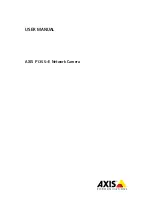
5-18
Cisco ASR 1000 Series Aggregation Services Routers Hardware Installation Guide
OL-13208-11
Chapter 5 Preparing Your Site for Installation
Preventing Electrostatic Discharge Damage
Locating for Proper Airflow
Ensure the location of the Cisco 1000 Series Router has enough airflow to keep the system operating
within the environmental characteristics and the air temperature is sufficient to compensate for the heat
dissipated by the system.
Avoid locating the Cisco 1000 Series Router in a location in which the chassis air intake vents could
draw in the exhaust air from adjacent equipment. Consider how the air flows through the Cisco 1000
Series Router. The Cisco 1000 Series Router airflow direction is front to back with ambient air drawn in
from the venting located on the chassis front sides.
Site Planning Checklist
Use the following checklist to perform and account for all the site-planning tasks described in this
chapter:
•
The site meets the environmental requirements.
•
The site air conditioning system can compensate for the heat dissipation of the Cisco ASR 1000
Series.
•
The floor space that the Cisco ASR 1000 Series Routers occupy can support the weight of the
system).
•
Electrical service to the site complies with the requirements.
•
The electrical circuit servicing the Cisco ASR 1000 Series complies with the requirements).
•
Consideration has been given to the console port wiring, and limitations of the cabling involved,
according to TIA/EIA-232F.
•
The Cisco 1000 Series Router Ethernet cabling distances are within limitations.
•
The equipment rack in which you plan to install the Cisco ASR 1000 Series chassis complies with
requirements.
•
Careful consideration has be given to safety, ease of maintenance, and proper airflow in selecting
the location of the rack.
Preventing Electrostatic Discharge Damage
Electrostatic discharge (ESD) damage, occurs when electronic cards or components are improperly
handled and can result in complete or intermittent failures. The performance routing engine (PRE), and
all line cards consist of a printed circuit card that is fixed in a metal carrier. Electromagnetic interference
(EMI) shielding and connectors are integral components of the carrier. Although the metal carrier helps
to protect the cards from ESD, use an antistatic strap each time you handle the modules. Handle the
carriers by the edges only; never touch the cards or connector pins.
Caution
Always tighten the captive installation screws on all system components when you are installing them.
These screws prevent accidental removal of the module, provide proper grounding for the system, and
help to ensure that the bus connectors are properly seated in the backplane.
















































